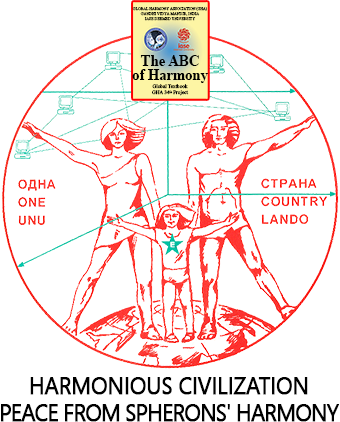
Albert Einstein, Nobel Prize in Physics:
1. Peace cannot be achieved through violence, it can only be attained through understanding [SCIENCE]. [BUT]
2. The significant problems we face cannot be solved at the same level of thinking we were at when we created them. [THEREFORE]
3. We shall require a substantially new manner of thinking if mankind is to survive. [NEW THINKING IS GLOBAL PEACE SCIENCE, GPS. IT PROVIDES]
4. Mankind's desire for peace [WHICH] can be realized only by the creation of a world government.
Global Harmony Association:
1. World government maybe only Global Peace Government of global SPHERONS instead global corporations.
2. Global Peace Government can arise and work only on the GPS basis as SPHERONS’ nonviolent ideology and scientific worldview.
3. Hence, if mankind is to survive, it must require from the national governments to recognize, to develop and to put in practice the SPHERONS’ GPS as a substantially new manner of social thinking to create world government, to constitute global peace and "shift the arms race into a peace race" (Martin Luther King Jr.)
Vladimir Putin, President of Russia:
1. The right choice… is the choice in favour of peace. [FOR WHICH]
2. We need is an essentially different approach [ENSURING] harmonization ... harmony.[THIS ESSENTIALLY DIFFERENT APPROACH IS GPS]
3. Russia’s strength lies in...the harmony of cultures, languages and…all faiths
4. “Washington is the Enemy of all Humanity” and “Putin saves the world from nuclear war by not being provocative.” Paul C. Roberts
What will say other national leaders?
John Scales Avery. Nobel Peace Prize:
We need system change, not climate change! We need a new economic system, a new society, a new social contract, a new way of life. Here are the great tasks that history has given to our generation: We must achieve a steady-state economic system. We must restore democracy. We must decrease economic inequality. We must break the power of corporate greed. We must leave fossil fuels in the ground. We must stabilize and ultimately reduce the global population. We must eliminate the institution of war. And finally, we must develop a more mature ethical system to match our new technology.
World Intellectuals Endorse the Importance of Global Peace Science
| |
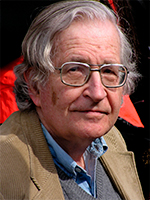 |
Sixty years ago, Bertrand Russell and Albert Einstein issued a grim warning to the people of the world. They wrote that we face a choice that is “stark and dreadful and inescapable: Shall we put an end to the human race; or shall mankind renounce war?” Looking over the record of these years, it is a miracle that we have survived, and the threats are very real today. A Global Peace Science devoted to “renouncing war” can make a critical contribution to removing at last this sword of Damocles poised over our heads.
Noam Chomsky, Prof. (r), Dept. of Linguistics and Philosophy, MIT, Cambridge, USA, World Harmony Creator
|
The United States and the United Kingdom committed genocide against the Iraqi people when, between 1990 and 2012, they killed 3.3 million people – including 750,000 children – through sanctions and wars…. I believe NATO should be abolished and that steps be taken towards disarmament through non-violent action and civil resistance. The means of resistance are very important. Our message that armed groups, militarism and war do not solve our problems but aggravate them challenges us to use new ways and that is why we need to teach the science of peace at every level of society.
Mairead Maguire, Nobel Peace Laureate, Ireland
| 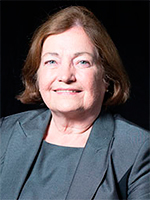 |
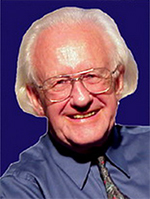 |
The West is now preparing a Crusade II against Islam; as individuals and as a state; better a Crusade against the Western addiction to war, state terrorism and militarism. For this we need more truly global peace science and research than ever, developing theory and concepts like harmony, testing them in concrete practice to solve underlying conflicts.
Johan Galtung, Dr., HC, Mult, Prof. of Peace Studies; Founder, Transcend: www.transcend.org, World Harmony Creator
|
The plague of global militarism and terrorism is hellish grave and horrendous chaos from war. Humanity should slip out of it by the strides of Global Peace Science from harmony to a new Renaissance. This Science fearlessly calls for international as well as personal disarmament to survive and get rid of the nightmare of dreadful abysmal crisis when its irrepressible powers push us toward turmoil. Peace Science is light at the end of lethal tunnel of armed violence.
Ayo Ayoola-Amale, Teacher, Muse of Poetic Harmony, GHA–Africa President, Ghana
| 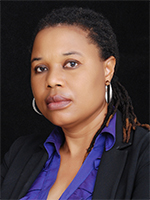 |
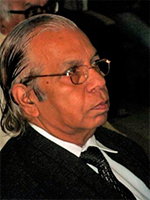 |
Three interconnected Great Revolutions of humanity are: Globalization, Informatization andPeacescienzation: Global Peace Science (GPS) as revolutionary shift to Indian Vedic tradition: World is one Family on way of building bridges of global Peace. GPS inspires transition from dying culture of militant materialism (anger, greed & violence) fomenting nuclear wars to culture of Peace from Harmony and Love. Military science divides the humanity and Peacescience unites it in peace and harmony of "One World - one Family." Therefore GPS is Victory of Peace over War, vaccine and immunity from the plague of global militarism and terrorism and alternative to nuclear war saving the Earth planet & Humanity.
Dr., Prof. Subhash Chandra, GHA Secretary General, India
|
Humanity lives at a moment when in many countries politics has become an extension of war. The violence, especially in Europe and the United States has become normalized. The relentless mobilization of fear and insecurity by governments mark a failure of collective conscience, flirtations with irrationality, and the triumph of extremism. State terrorism is on the rise and the plague of authoritarianism has cast an ominous shadow over the liberal democracies. A Global Peace Science devoted to creating the formative cultures, institutions, and movements elevating peace over war, justice over injustice, and democracy over militarism is crucial for “renouncing war.”
Henry A. Giroux, McMaster University Chair Professor of Scholarship in the Public Interest, Faculty of Humanities, Hamilton, Canada
| 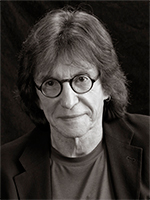 |
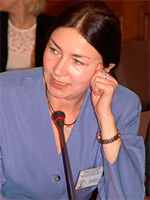 |
It is gratifying and symbolic that Global Peace Science includes in life under the Peace Banner proposed 80 years ago by Nicholas Roerich, expressing continuity of the peace source in culture, an integral part of which is science. Global Harmony Association has already demonstrated its previous publications (among them the main thing is The ABC of Harmony) that it aspires to unite people on the basis of scientific worldview with full respect to different religions and cultural diversity. Global Peace Science is the Earth people new step to make conscious choice of peace today in the exacerbating struggle between light and darkness.
Yulia Budnikova, researcher of the Roerich creativity, President, GHA-Russia
|
Condemning war and militarism is an important first step toward saving the world from a nuclear catastrophe. We must also recognize that hegemonic provocations by US/NATO could lead to a world war. The United Nations, due to its fatally flawed Charter, is unable to prevent the perpetual wars that constantly threaten humanity's very existence. Hope lies in replacing the UN Charter with the visionary Earth Constitution together with fundamental Global Peace Science geopolitics -- gifts to the world awaiting discovery for a peaceful Era.
Roger Kotila, Ph.D., Editor, Earth Federation News & Views, USA
|  |
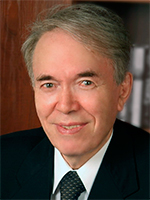 |
Save the world from a global war may turn of the current human evolution to conscious harmony, creating global peace through science, spirituality and morality. Knowledge of the laws of deep structure of social harmony, including the paradigm of "D + 3D", performs by Global Peace Science, acquirement of which becomes urgent task of all states in the 21st century in transition from destructive geopolitics of war to saving geopolitics of peace. "Harmony will save peace through science!"
Uraz Baimuratov, Academician, Director, Institute of Economics, Academy of Sciences, Kazakhstan
|
Human beings are rushing headlong to the precipice of extinction. Why is this? Because we are engaged in an orgy of violence against life: our fellow humans, our fellow species, the Earth itself. To survive, we must do many things ranging from nonviolently resisting those insane western elites that threaten us with nuclear obliteration to learning to nurture our children so that they lead lives of fearless, compassionate power in the struggle for peace, justice and sustainability. Global peace science has a vital role to play in this endeavor.
Robert J. Burrowes, author of 'Why Violence?', Australia
| 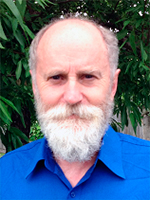 |
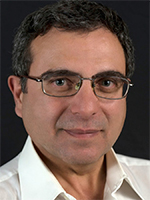 |
The soul of humanity requires immediately the “Global Peace Science” which is capable to stop the atrocities of the Western world dominators, lay the foundation of Peace, Harmony, Democracy, Freedom, Justice, Love and Dignity of mankind and clear the terrible darkness of human soul. Because, deeply within the humanity consciousness remains ignorant and helpless in regard to peace, immersed in history in continuous wars. Unfortunately, for thousands of years, no religion, no art, no law and policy were not able to go out it of the militarist slavery, due to lack of paideia (education of beautiful and good) and Peacescience. only paideia plus the powerful tool of Peacescience are able to do it that determines its historical role.
Dr. Panagiotis (Takis) Dimos Ioannides, Athens, Greece
|
Invincible soft force of global peace consists in absolute power of social harmony of the world's population, in its four SPHERONS, harmonious classes. Their harmonious power, scientifically organized in Spheral Democracy (SPHERONS’ democracy) at all levels from local to global is able to put an end to militarism and endless wars of the irremovable ruling elite under the pall of its militarist "democracy". In 2015, Global Peace Science became first property of humanity staying earlier in the full power of military science, militarism and continuous wars of elite. The historical significance and intellectual power of peace science consists in discovery of an alternative, soft power of peace from SPHERONS’ harmony, winning military force agony, plague of militarism/terrorism and violence orgy.
Dr. Leo Semashko, Initiator and Editor in Chief, Global Peace Science, GHA President, Russia
| 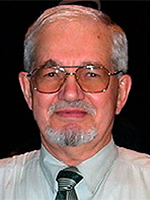 |
Other estimates of Global Peace Sciencelook at the book end.
GHA Message TO BRICS and other Peaceful States Leaders:
President of Russia - Mr. Vladimir Putin
Prime Minister of India - Mr. Narendra Modi
President of the People's Republic of China - Mr. Xi Jinping
President of Brazil - Ms. Dilma Rousseff
President of South Africa - Mr. Jacob Zuma
President of Kazakhstan - Mr. Nursultan Nazarbayev
Prime Minister of Malaysia - Mr. Najib Razak
And other.
The Global Harmony Association (GHA), which comprises more than 600 members from 65 countries and has created for 10 years the first in history version of "Global Peace Science" (GPS) in same name book on the Russian (2015) and English (2016) languages by more than 130 coauthors including the former President of India, Abdul Kalam, Nobel Peace Laureate Mairead Maguire, pioneer of peace studies Johan Galtung and many other distinguished scholars and peacemakers,
CALLS YOU TO ESTABLISH
INTERNATIONAL ACADEMY OF GLOBAL PEACE (IAGP)
as joint bridge of peace through science and culture for the beginning of 20-25 scholars, for example in Russia, Simferopol that will make Crimea by BRICS scientific center.
The IAGP Purposes are development of Global Peace Science (GPS) as innovative transformation of peace thinking, training Bachelors, Masters and Doctors of Peacemaking Science and diffusion of GPS.
The Method of GPS development is democratic consolidation in IAGP the scientific groups from different countries with different scientific approaches to peace. The GPS option created in the GHA is the initial. The GPS final version should be created in the IAGP.
IAGP Vision: Creating a multipolar and harmonious/balanced world order excluding the war to ensure peace and prosperity to all nations.
IAGP Implementation: Joint projecting and investment (both: state and business) in construction of the IAGP building in Crimea and joint governance of the IAGP.
Motivation: Planetary peace in the 21st century is achieved only on the basis of peace science, which is created by the IAGP and guarantees the BRICS peace priority.
Peace in our time is as fragile as it was 100 years ago. Humanity is once again on the verge of world war but now nuclear, unprecedented in its victims. War constantly wins peace because it has one absolute advantage - military science, science of killing by the most sophisticated weapons of mass destruction. This science was established more than two centuries ago and since then all governments cherish it with the fattest military budgets.
But in contrast to war, peace is still deprived of own science that does not allow to strengthen it with stable social consciousness. Creation of this science is the historical missionof the BRICS, which only you are able to decide. Another way to global peace does not exist. (The Message full text see chap. 10).
Sincerely, Global Peace Science coauthors, 24 from more than 130:
Dr. Leo Semashko, Julia Budnikova and Yuri Ztimbalist, Russia; Dr. Subhash Chandra, Dr. Surendra Pathak and Dr. Narayanam N. Murthy, India; Delasnieve Daspet, Brazil; Mairead Maguire and Dr. Stephen Mennell, Ireland; Dr. Johan Galtung, Germany; Dr. Uraz Baimuratov, Kazakhstan; Dr. Roger Kotila, Dr. Rudolf J. Siebert and Dr. Kurt Johnson, USA;
Dr. Francois Houtart, Belgium; Ayo Ayoola-Amale, Ghana; Heli Habyarimana, Rwanda; Dr. Gopala Krishnan, Malaysia; Dr. Bishnu Pathak, Nepal; Dr. Ernesto Kahan, Israel; Dr. Takis Ioannides, Greece; Guy Crequie, France; Dr. Robert J. Burrowes, Australia; and other.27/09/15
Global Peace Science or
Peaceloveology, Peacescience:
First Common Good and Human Right,
Revolution of Social Sciences,
Creating Peace from SPHERONS' Harmony and
Nonviolent Victory of Peace over War in
XXI Century
World textbook for schools, colleges, universities and academies
Dedicated to the GHA 10th anniversary, February 15, 2005,
70th anniversary of victory over fascism, May 9, 1945,
80th anniversary of signing of the Roerich Pact, April 15, 1935,
UN International Day of Peace, September 21,
UN Interfaith Harmony Week on February 1–7,
UN International Day of Yoga, June 21
The GHA 48th Project. Started: March 12, 2013
Global Peace Science book is joint publication of
Global Harmony Association,
IASE Deemed University, Gandhi Vidya Mandir, India and
Global Peace Foundation, Department of India in
2 languages: Russian – in Russia, St. Petersburg, 2015 and
English – in India, New Delhi and US, 2016
Online:
New Delhi
2016
Authors:
Dr. Leo Semashko, GHA President, Project Manager, Editor in Chief and 173 coauthors:
Ernesto Kahan, Andrei Semashko, Julia Budnikova, Surendra Pathak, Heli Habyarimana,Ayo Ayoola-Amale, Mohammad Khan, Ivan Ivanov, Roxana Sadykova, Svetlana Kuskovskaya, Vera Popovich, Dmitry Delyukin, Alexander Semashko, Piotr Semashko, Alexander Subetto, Uraz Baimuratov, Bishnu Pathak, Nina Meyerhof, Adolf Shvedchikov, Tholana Chakravarthy, APJ Abdul Kalam, A.K. Merchant, Maria Cristina Azcona, Susana Roberts, Manijeh Navidnia, Subhash Chandra, Kurt Johnson, David Ord, Laj Utreja, Timi Ecimovic, Roger Haw, Apostolos Paschos, Athanassios Koumouris, Takis Ioannides, Charles Mercieca, Maitreyee Roy, Matjaz Mulej, Anita Hrast, Reimon Bachika, Olga Kashina, Leela Pradhan, Rudolf Siebert, Kanakmal Dugar, Kartar Singh, Igor Kondrashin, Yuri Tsymbalist, Terrence Paupp, Erika Lazarova, Naresh Goyal, Harold Becker, Renato Corsetti, Germain Dufour, François Houtart, Evelin Lindner, Marianna Poghosyan, Leonid Timoshenko, Chinta Yogi, Ammar Banni, Nicolae Bulz, Marcel Stoica, Robert J. Burrowes, Anita McKone, Anahata Giri, Celia Altschuler, Nina Yudina, Zaure Hizatolla, Jose Lopera, Guy Crequie, Ada Aharoni,Albert Stahel, Johan Galtung, Amy Goodman, William Blum, Frank Dorrel, Sarah Lazare, John McMurtry, Jon Queally, Tom Engelhardt, Joachim Hagopian, David Swanson, Mairead Maguire, Dennis Kucinich, Eddie Vudburn, Tatiana Vorontsova, DinonysisGeorgakopoulos, Ronald Paul, Ramesh Kumar, Surya N. Prasad, Roger Kotila, Jim Hightower, Teresinka Pereira, Glen Martin, RamKrishna Singh, Yegor Kalabashkin, Vadim Tatur, Alexander Chechik, Subhash Sharma, Michael D. Greaney, Norman Kurland, Stephen Mennell, Kevin Zeese, Margaret Flowers, William J. Astore, Stephen Lendman, Jürgen Todenhöfer, Noam Chomsky, Rick Rozoff, Maurizio Blondet, Ramsey Clark, Frank Dorrel, Mnar Muhawesh, Alan Gilbert, William Boardman, John Pilger, Wayne A. Root, Rahul Manchanda, Michel Chossudovsky, Chris Hedges, Michael Aydinian, Paul Buchheit, Alan Barber, Bill Quigley, Tom N. Dunn, Robert B. Reich, Bethany Snow, Robert C. Koehler, Deirdre Fulton, Lauren McCauley, Peter Turchin,Michael Springmann, Sharon Tennison, Gevorg Mirzayán, Nikolay Surkov, Delasnieve Daspet, Hilarie Roseman, Yevgeny Yevtushenko, Dimitris P. Kraniotis, Ime Biassoni, Bruce L. Cook, Rene Wadlow, Svetlana Vetrova, Katherine Semashko, Elena Sazhnova, Polina Semashko, Stephan Semashko, Henry Giroux, James A. Lucas, Nick Turse, Brian Willson, Tom Carter, James Petras, Brendan Byrne, Joshua Kopstein, Nanni Salio, Nadia Prupis, Nafeez Ahmed, James Albertini, Hrant Arakelian, Rosa Dalmiglio, Chand Bhardwaj, Jason Box, Naomi Klein, Erika Degortes, Irene Galtung, Malvin Gattinger, Naakow Grant-Hayford, Ravi Bhatia, Thomas Gaist, Victor Shenyagin, Tatiana Kablova, Henry Skvortsov, Andrey Smirnov, Sergei Busov, Alexander Savelyev, Chuck Woolery,
From 34 countries: Australia, Algeria, Argentina, Armenia, Belgium, Bulgaria, Brazil, Britain, Canada, France, Germany, Ghana, Greece, India, Ireland, Israel, Iran, Italy, Japan, Kazakhstan, Malaysia, Nepal, Netherlands, Norway, Pakistan, Russia, Puerto Rico, Romania, Rwanda, Slovenia, Spain, Switzerland, Ukraine, USA,
Including coauthors from the countries (on 24/12/15):
Australia,- 5
|
France,-2
|
Italy,-4
|
Romania,-2
|
Algeria,- 1
|
Germany,-4
|
Japan,-1
|
Russia,- 33
|
Argentina,- 3
|
Ghana,-1
|
Kazakhstan,-2
|
Rwanda,- 1
|
Armenia,- 2
|
Greece,-5
|
Malaysia,-1
|
Slovenia,-2
|
Belgium,- 1
|
Israel,-2
|
Nepal,-3
|
Spain,-2
|
Bulgaria,-1
|
India,-15
|
Netherlands,-1
|
Switzerland,- 1
|
Britain,-4
|
Iran,-1
|
Norway,-1
|
Ukraine,- 3
|
Brazil,-1
|
Ireland,- 2
|
Pakistan,-1
|
USA,-59
|
Canada,-6
|
Puerto Rico,-1
|
The GHA 72 members – coauthors of this book made donations to global peace to publish the GPS textbook.
